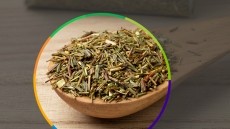Blueberry compounds linked to colon cancer prevention
development of tumours in the colon, if results from an animal
study can be translated to humans, researchers have said.
Researchers from Rutgers University told attendees at the 233rd national meeting of the American Chemical Society that rats supplemented with pterostilbene had 57 per cent fewer pre-cancerous lesions in the colon than rats not supplemented with the blueberry compound. The research could boost further the healthy image of the berry, already firmly engrained in consumer's minds for its apparent cholesterol lowering abilities, as well as indications that the fruit could offer protection from neurodegenerative diseases like Alzheimer's. Sales of the fruit have been booming, going from £10.3m (€14.9m) in 2003 to almost £40m (€58m) in 2005, according to UK supplier BerryWorld, driven by dieticians and scientists hailing the fruit as one of nature's superfoods. "To our knowledge, our studies are the first to show that administration of a blueberry constituent, pterostilbene, strongly inhibits the development of early pre-neoplastic lesions in the colon," lead researcher Bandaru Reddy told attendees in Chicago. Reddy and co-workers conducted a small pilot study with 18 rats given a compound (azoxymethane) to induce colon cancer in a manner similar to human colon cancer development. Half of the animals were then placed on a balanced daily diet, while the other nine were given the same diet supplemented with pterostilbene (40 parts per million). At the end of an eight-week study period, Reddy and collaborators from the USDA's Agricultural Research Service and the University of Oklahoma, found that the pterostilbene-supplemented rats showed 57 per cent fewer pre-cancerous lesions in their colon in comparison to the control group. They also report that the blueberry compound reduced colonic cell proliferation and inhibited certain genes involved in inflammation, both of which are considered colon cancer risk factors. "The results of the study suggest that naturally occurring components offer an attractive alternative for the prevention of colon cancer," said Reddy. "Our results may support dietary prevention of colon cancer and health benefits of blueberries." There are 363,000 new cases of colorectal cancer every year in Europe, the incidence of the cancer is rising, especially in Southern and Eastern Europe. Eighty per cent of colorectal cancers may be preventable by dietary changes. It is also one of the most curable cancers if diagnosis is made early. The humble blueberry's cholesterol-lowering activity was also given a boost at the ACS meeting, with Agnes Rimando, co-researcher on the colon cancer study, reporting that hamsters fed a high-cholesterol diet containing blueberry skins (7.6 per cent of the diet) had lower levels of plasma and liver triglycerides (TGs), LDL-cholesterol, free and total cholesterol of 39, 18, 19, 30 and 37 per cent, respectively, compared to animals fed the control diet. Source: 233rd national meeting of the American Chemical Society March 25 2007, Abstract: AGFC 009 "Novel approaches for colon cancer prevention by types of dietary fat, pterostilbene and other food components" Authors: B.S. Reddy, H. Newmark, N. Suh, A.M. Rimando, and C.V. Rao 233rd national meeting of the American Chemical Society March 26 2007, Abstract: AGFC 038"Blueberry skins lower plasma and liver cholesterol and triglycerides in hypercholesterolemic hamsters" Authors: A.M. Rimando, W.H. Yokoyama, A. Patny, M.A. Avery, C.S. Mizuno













